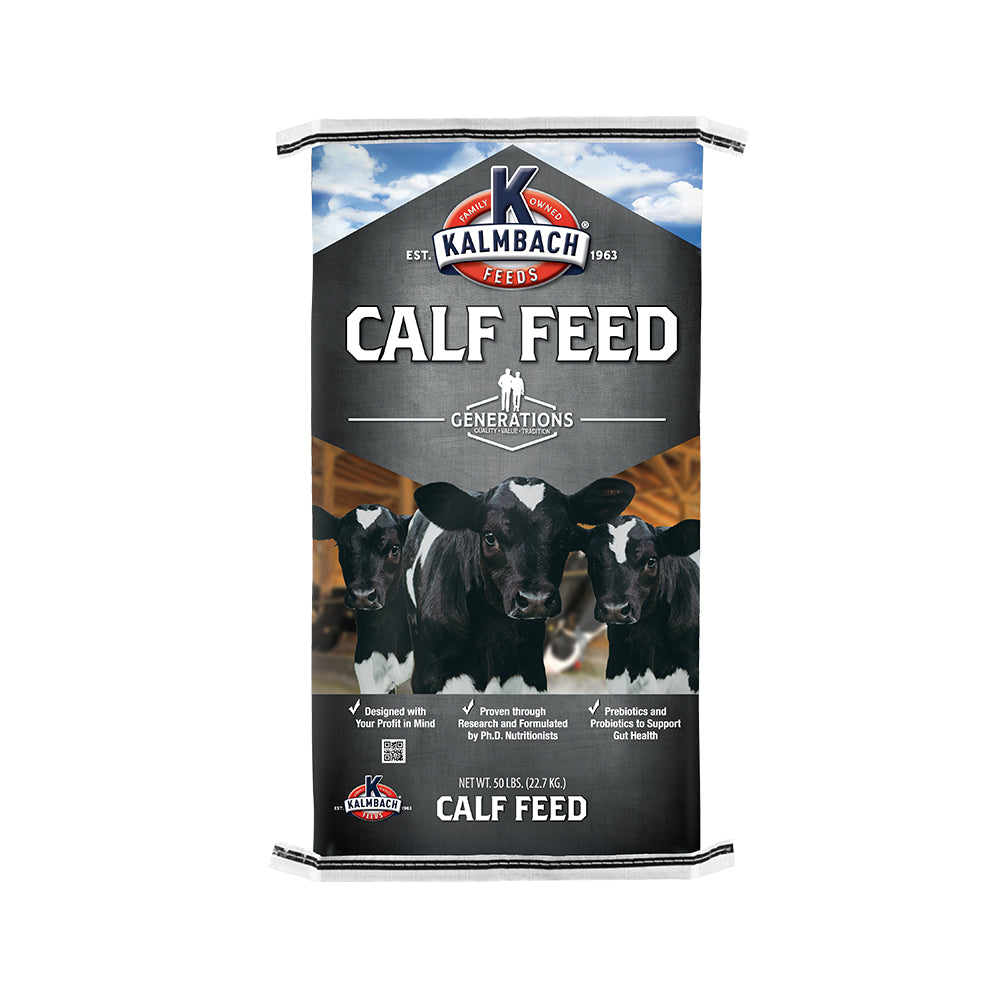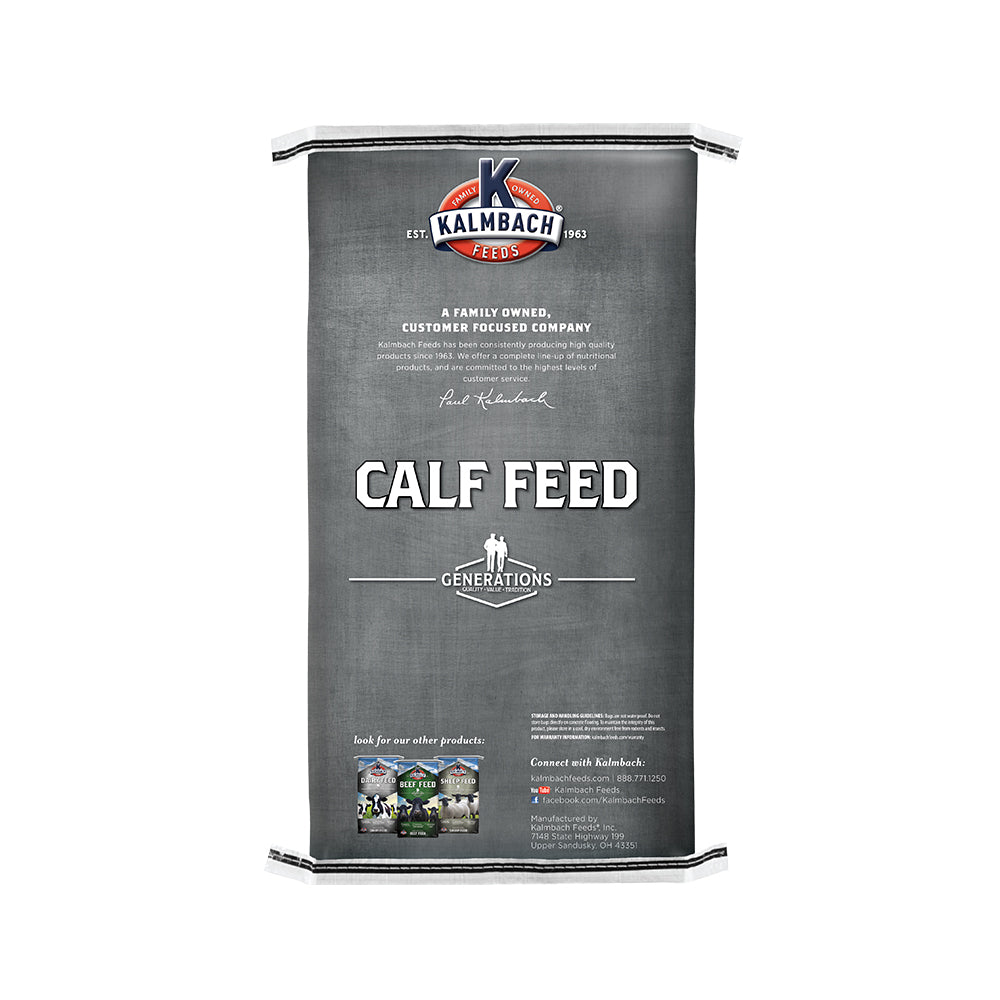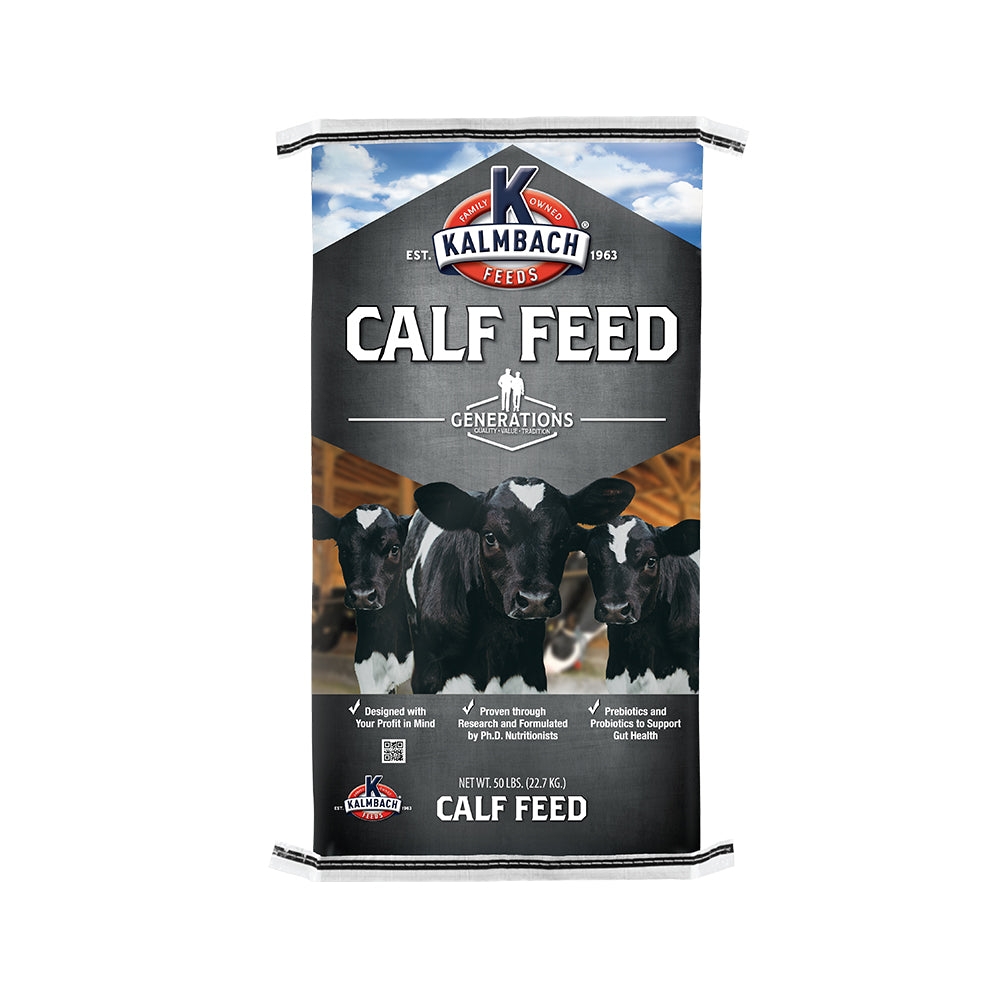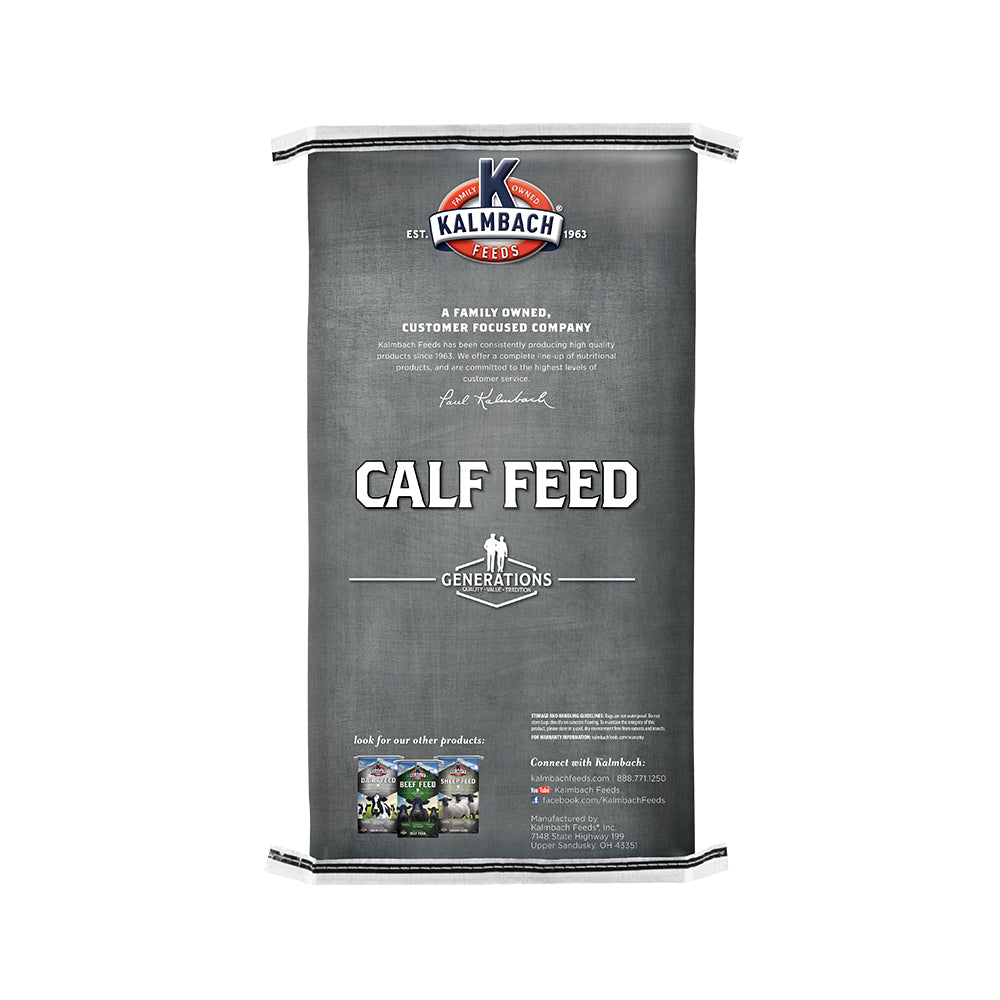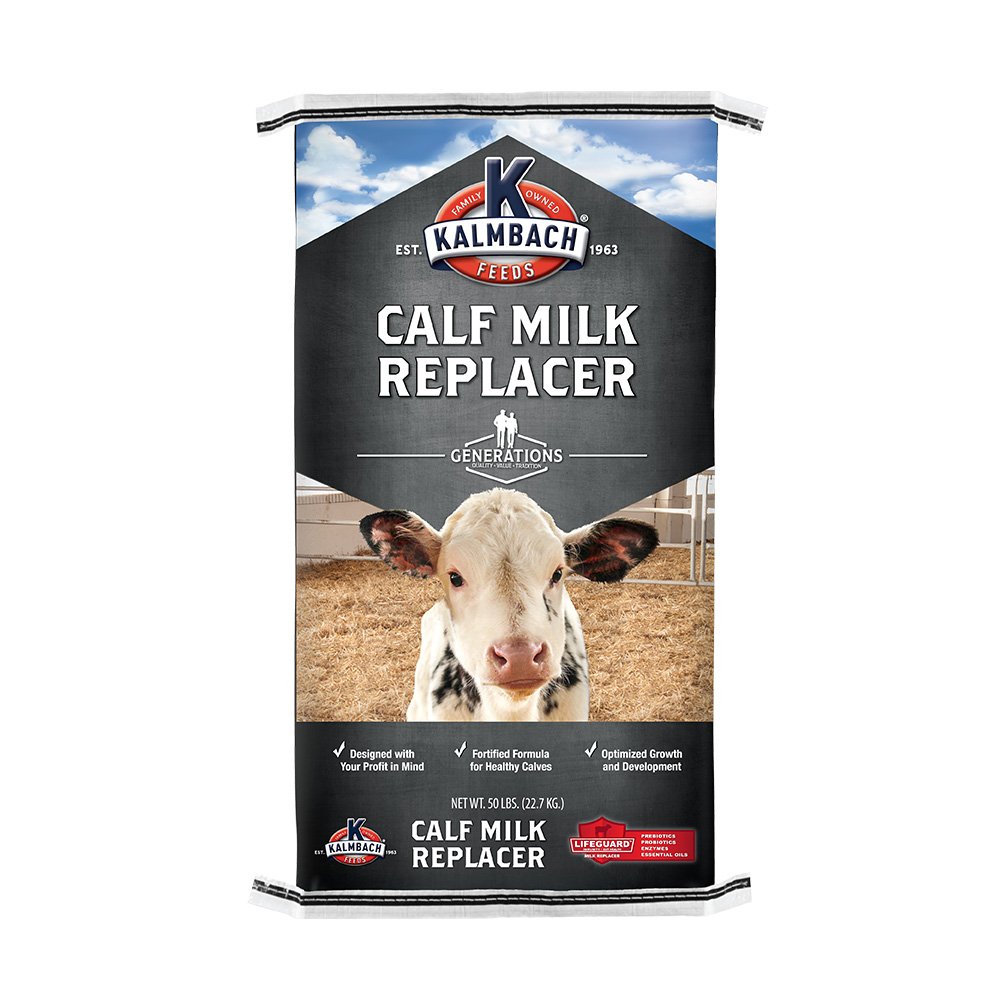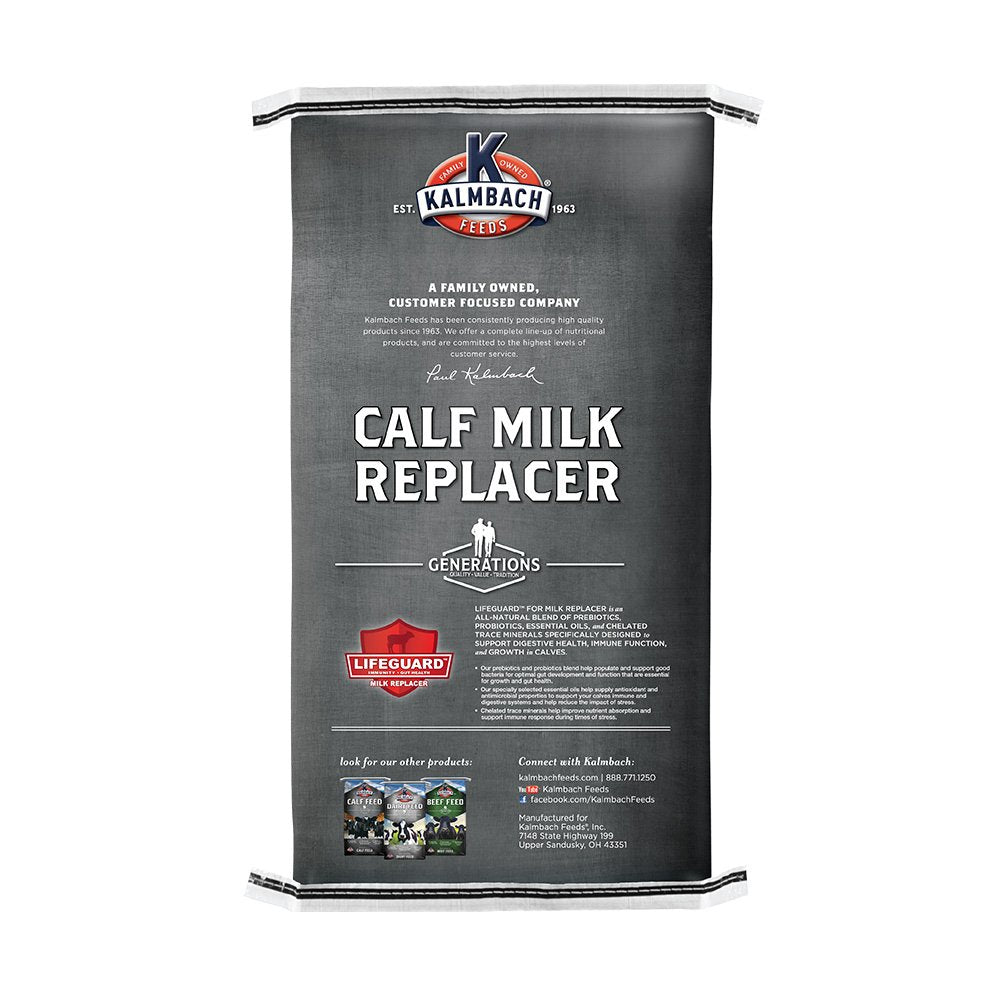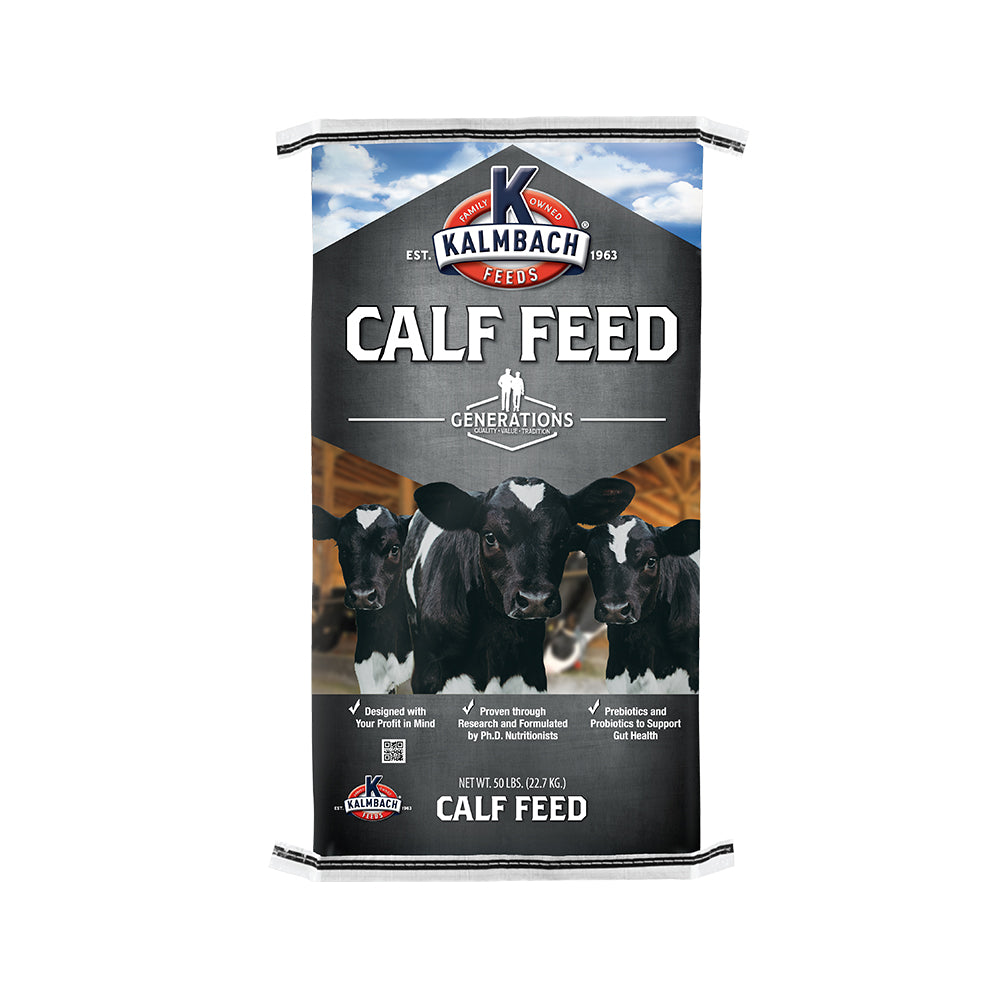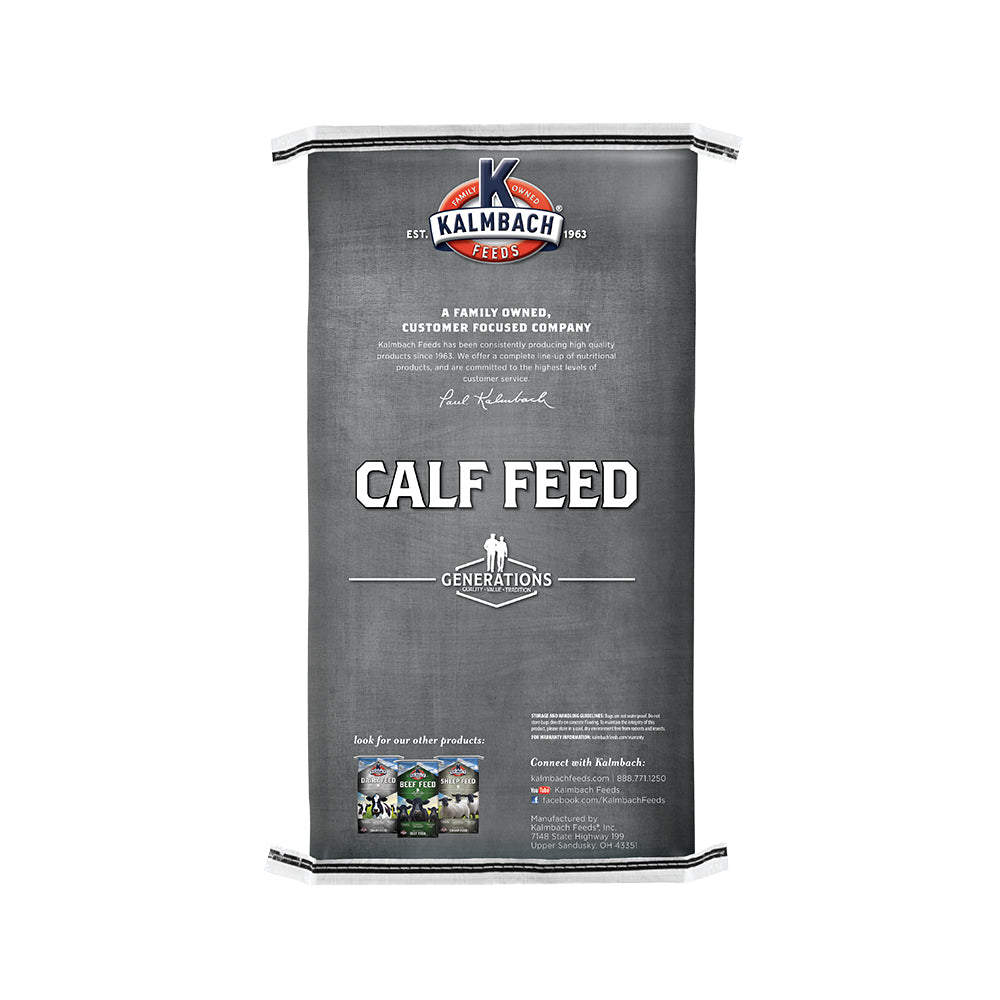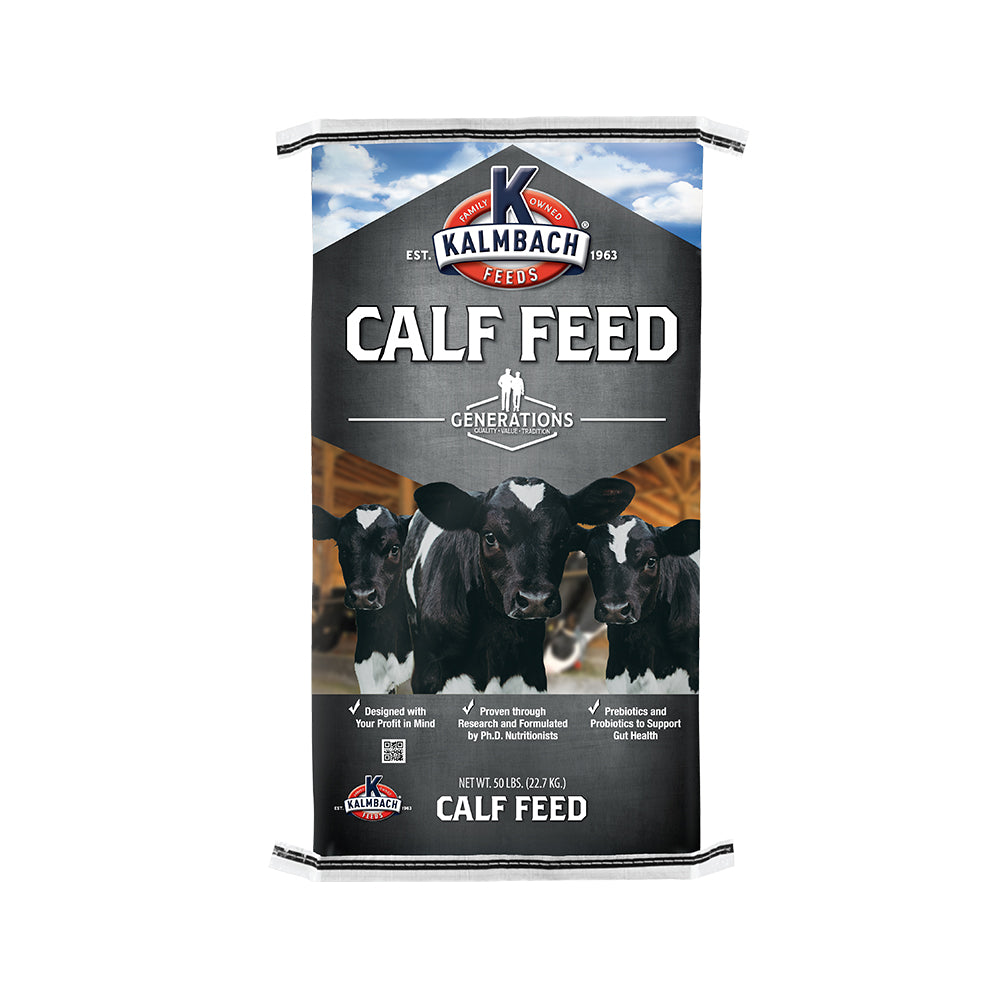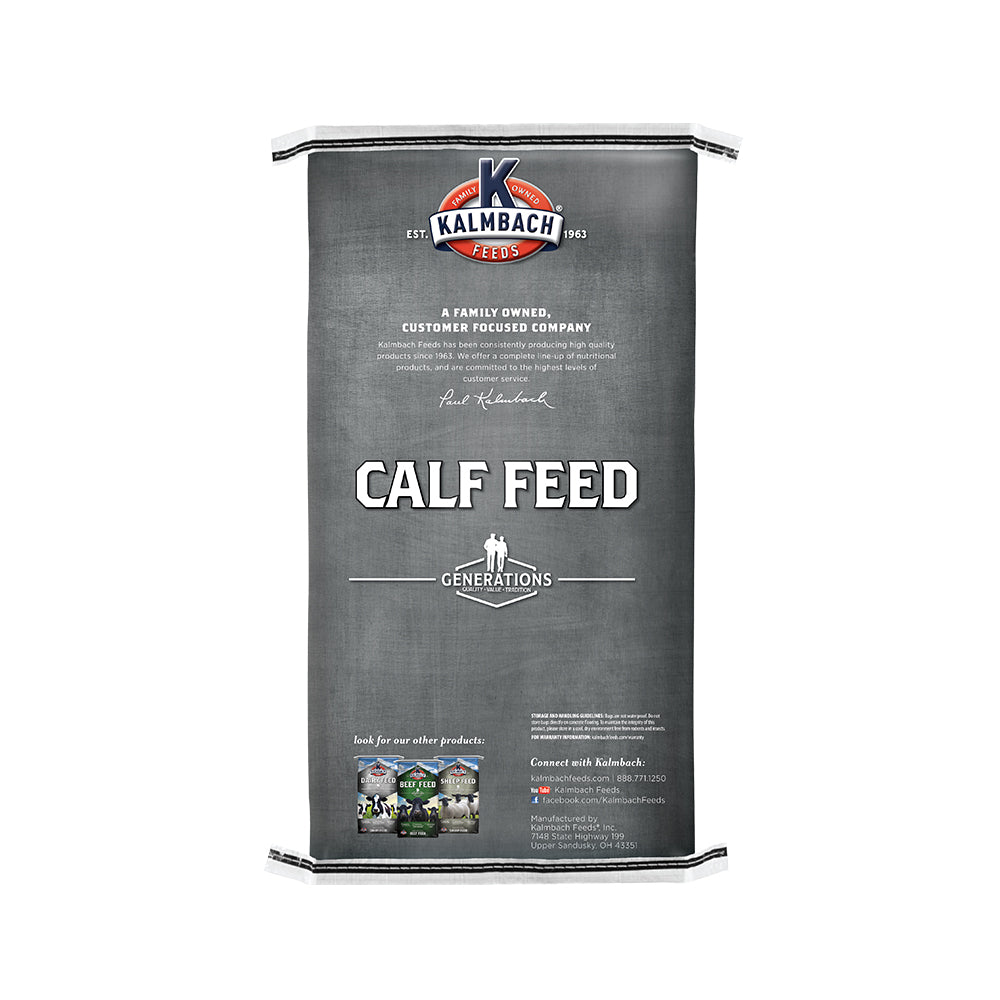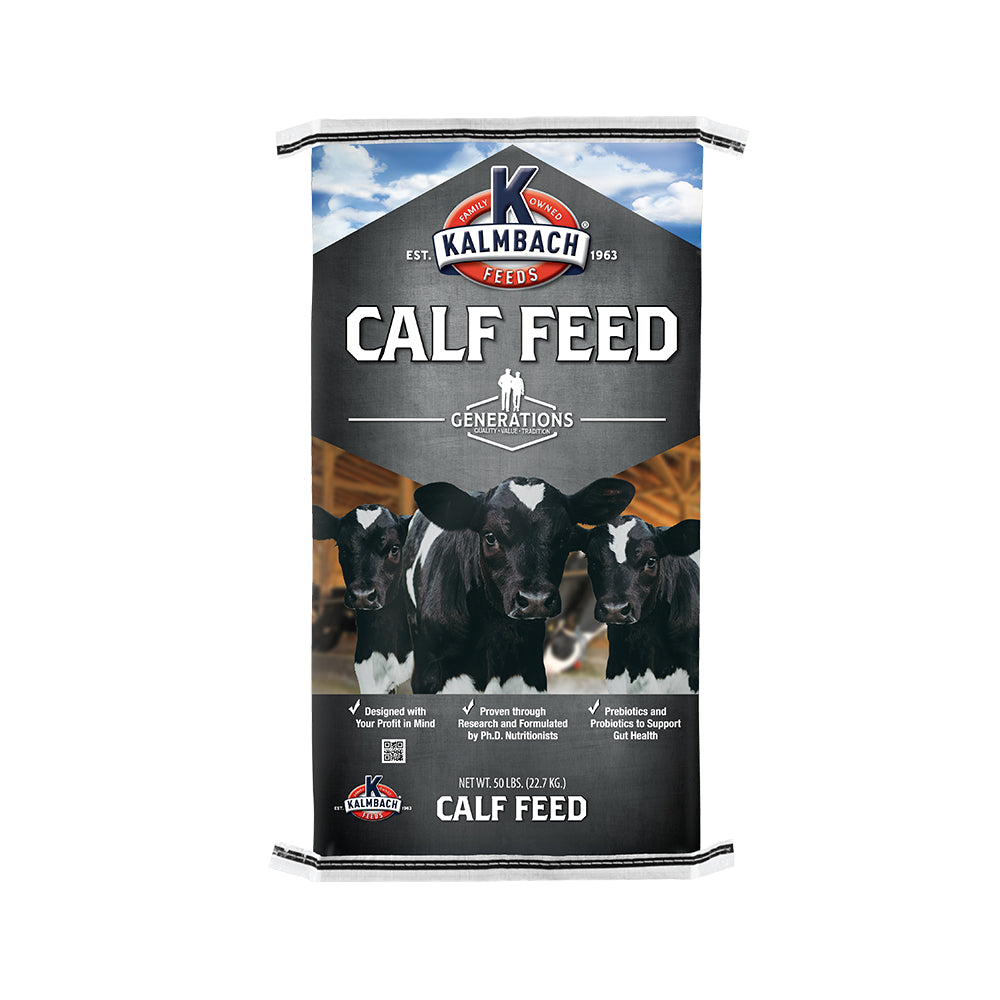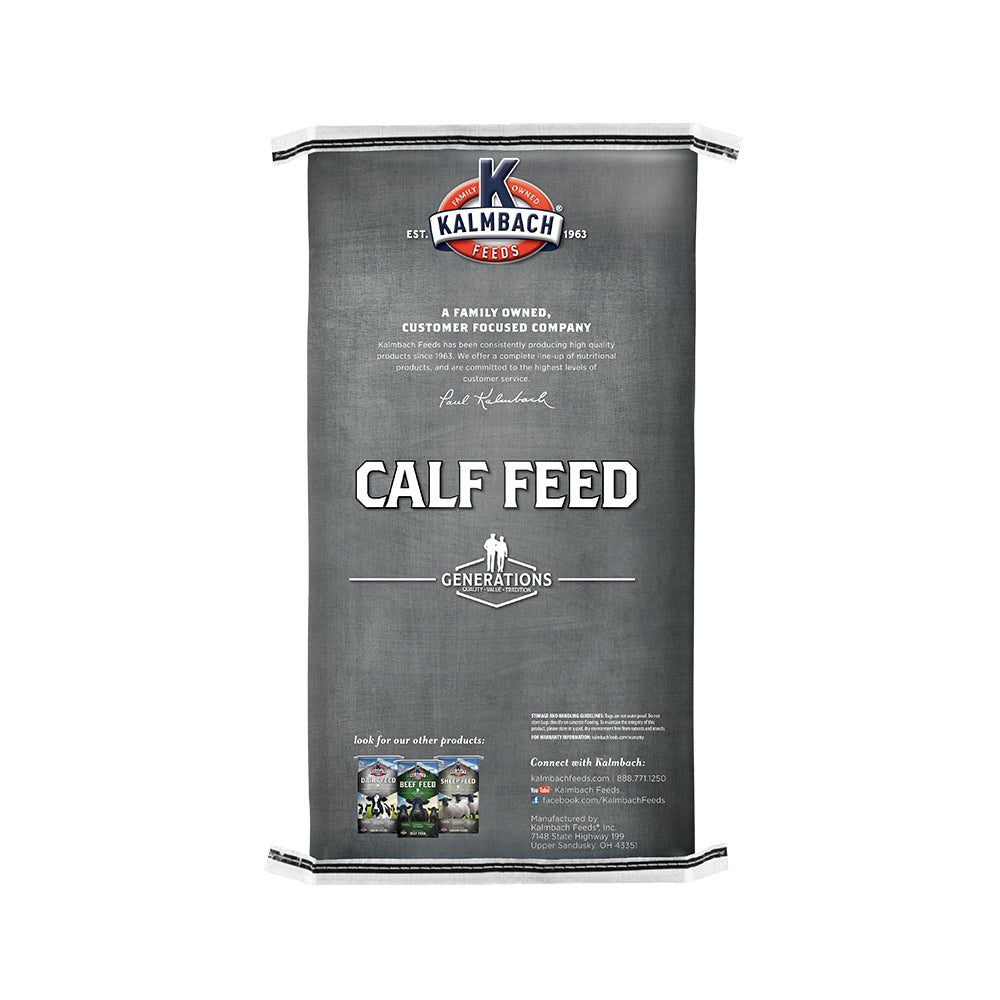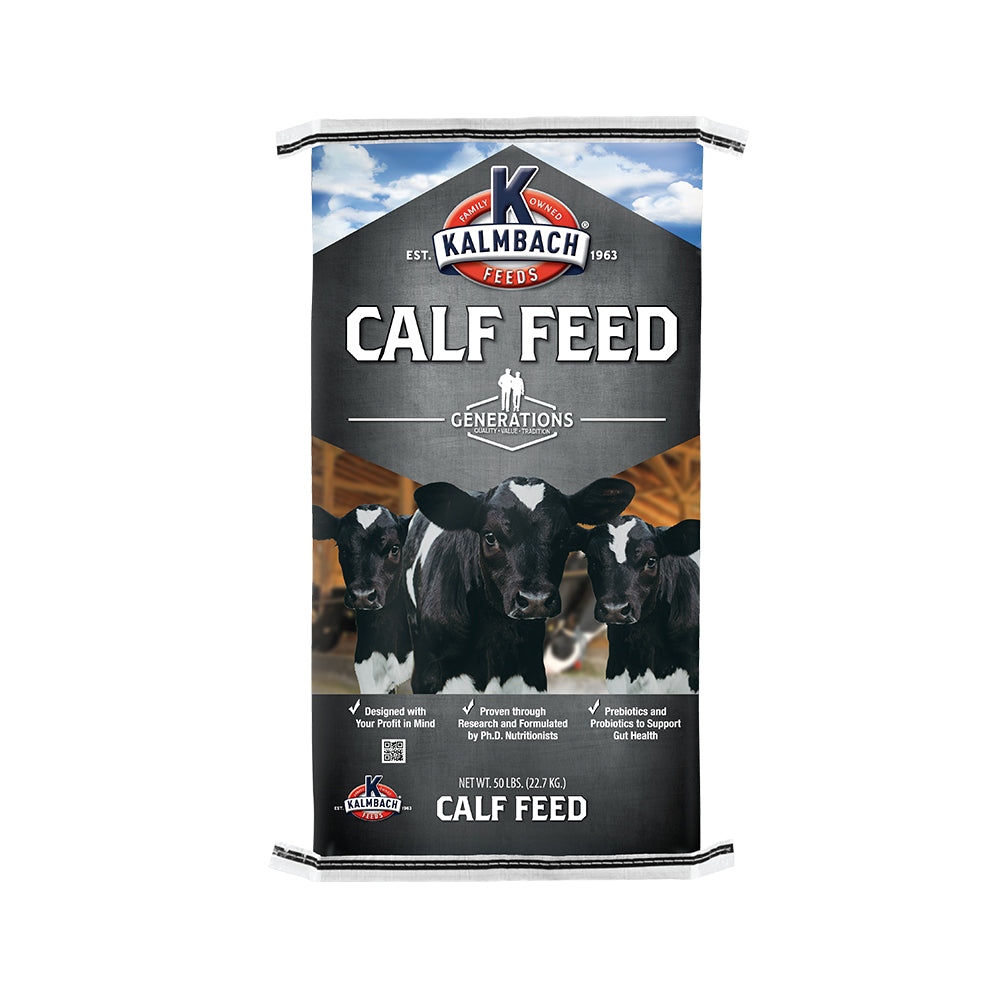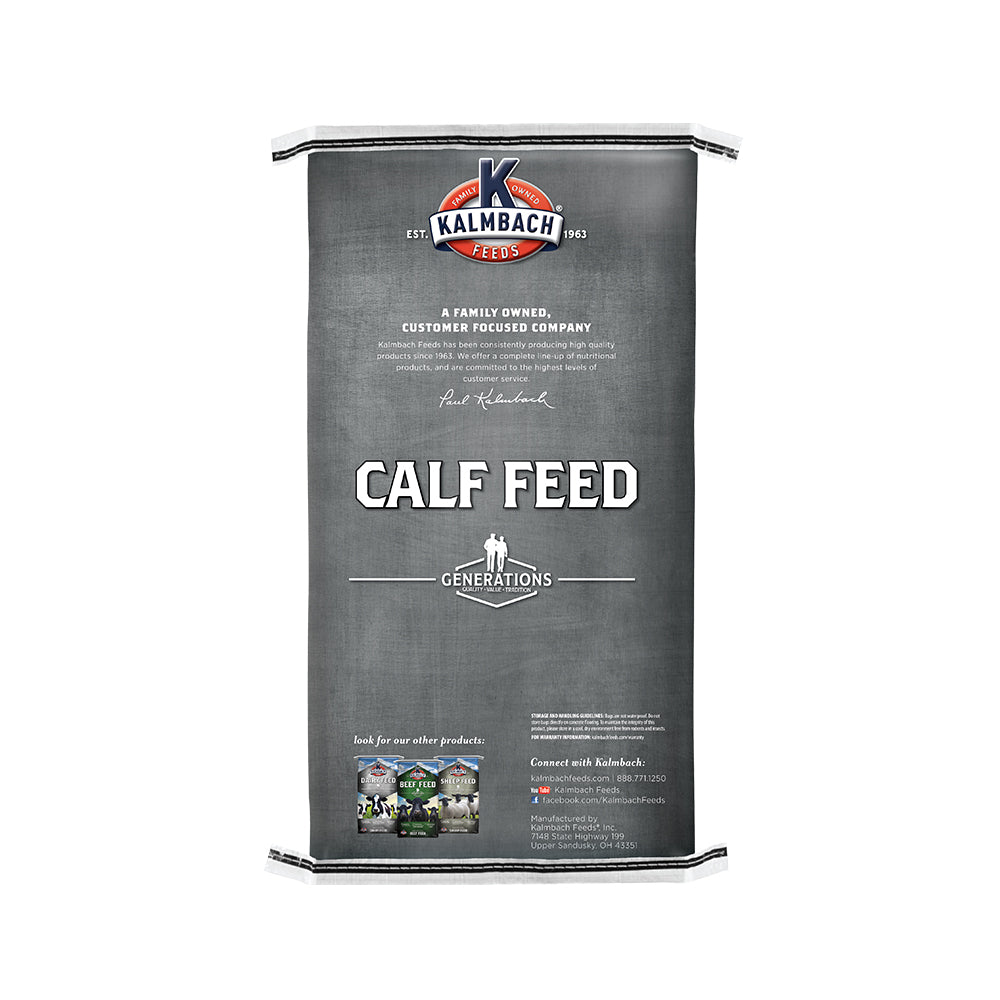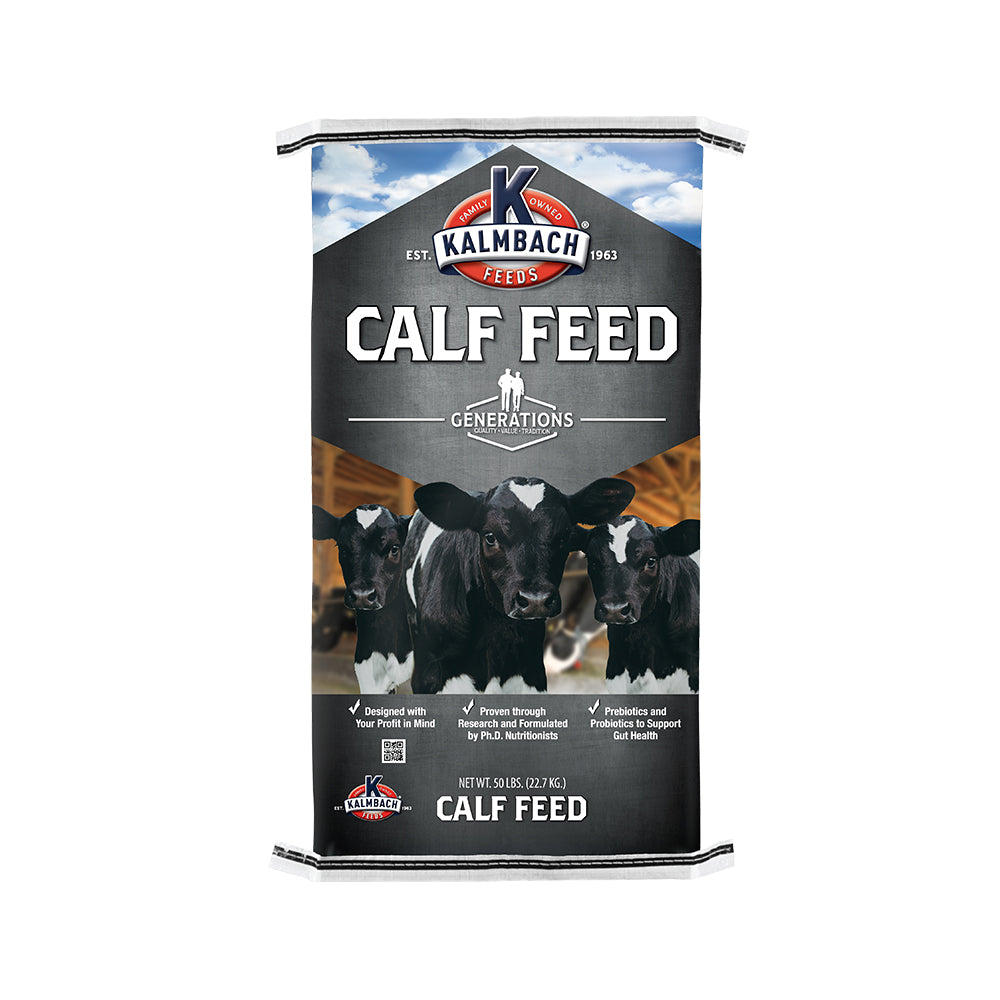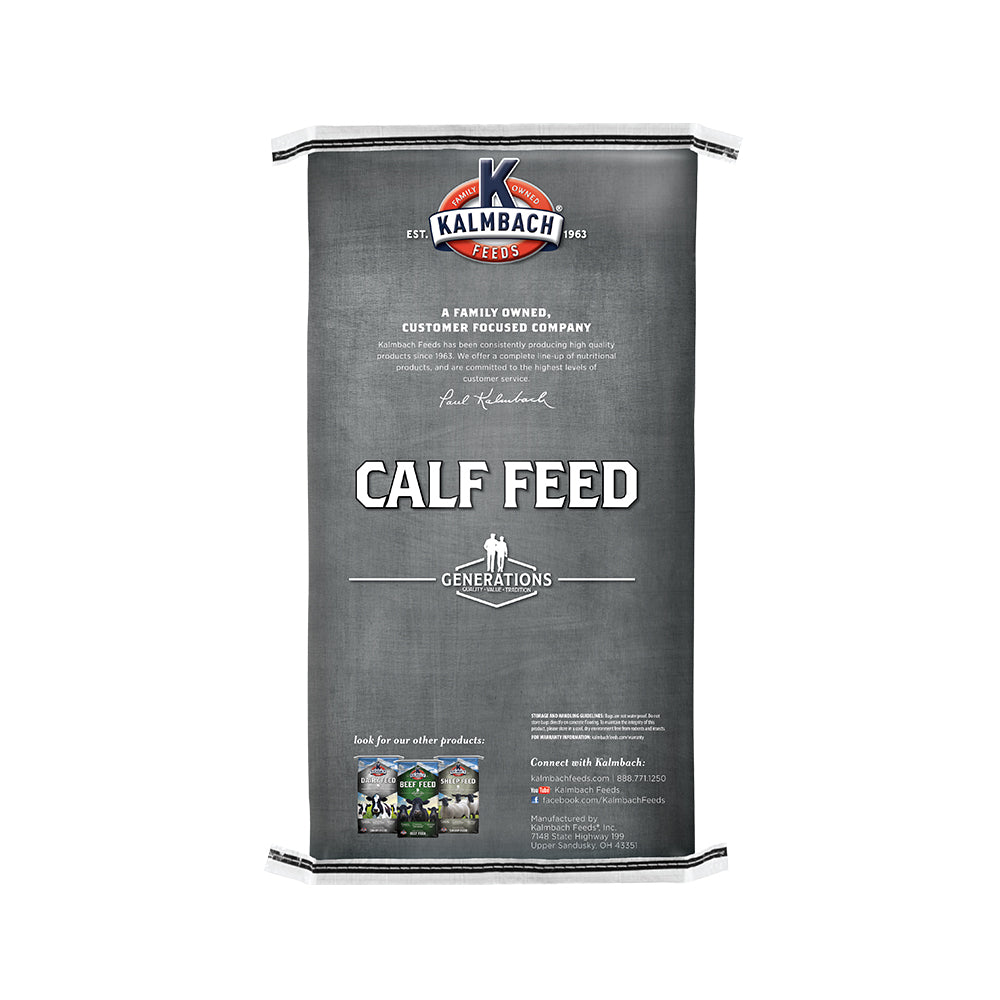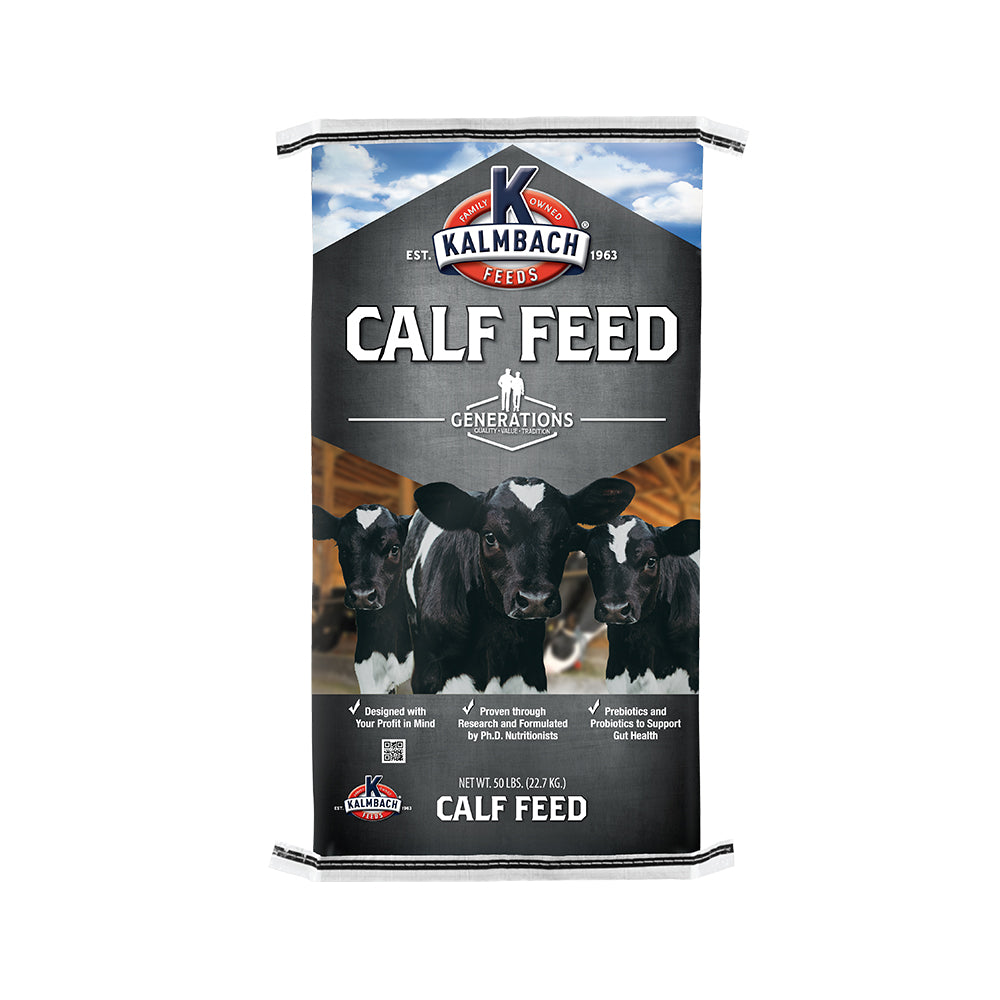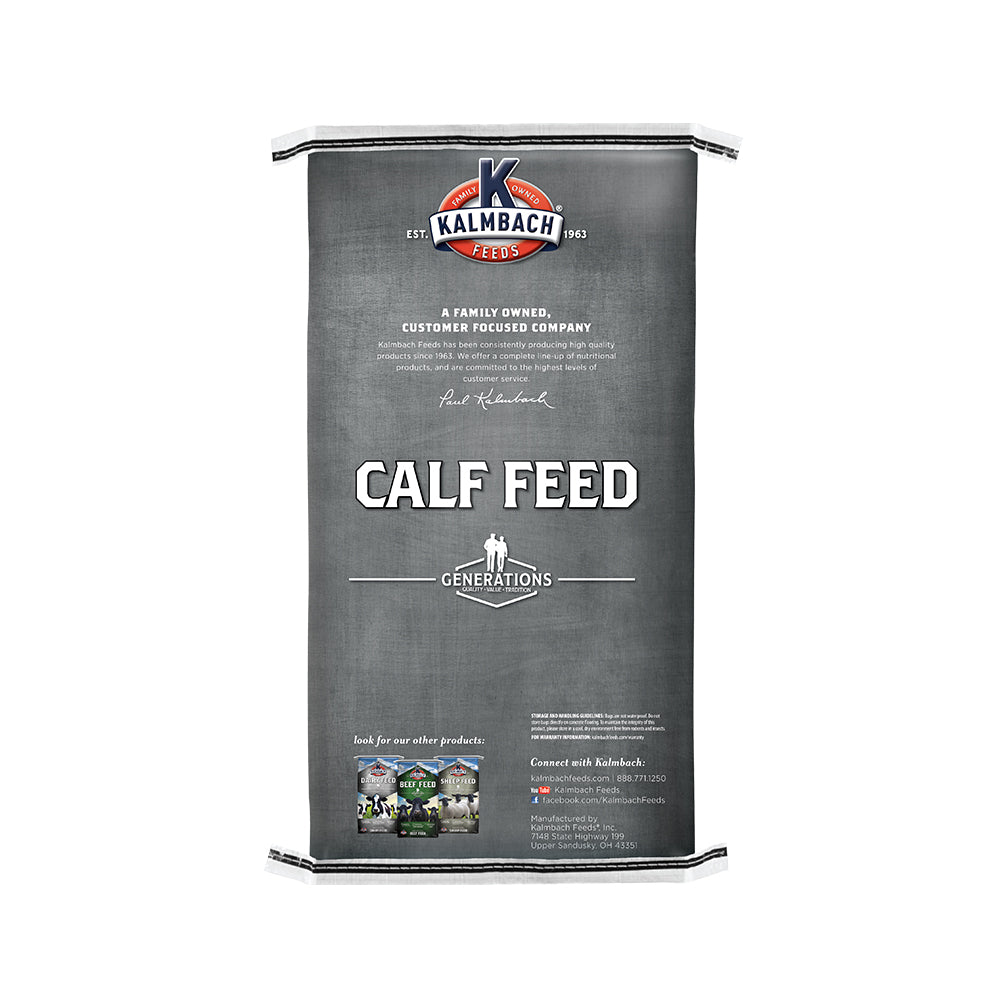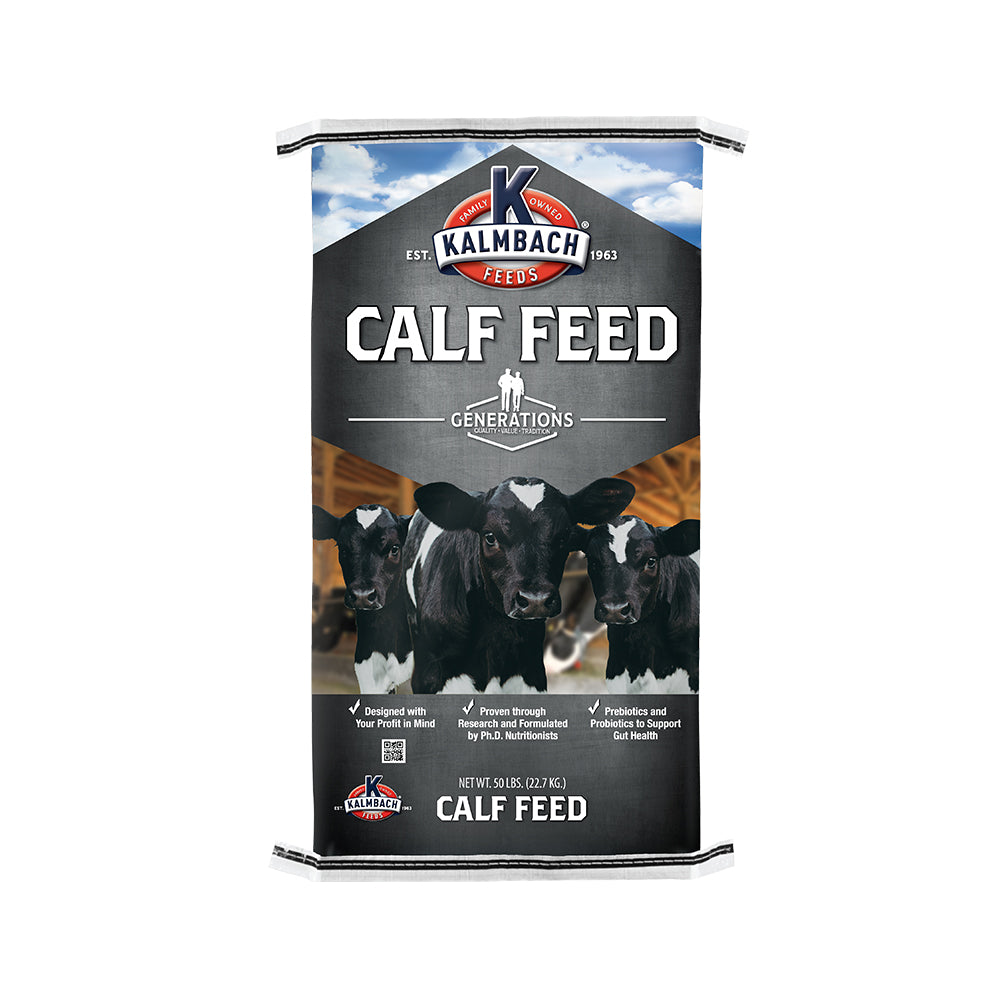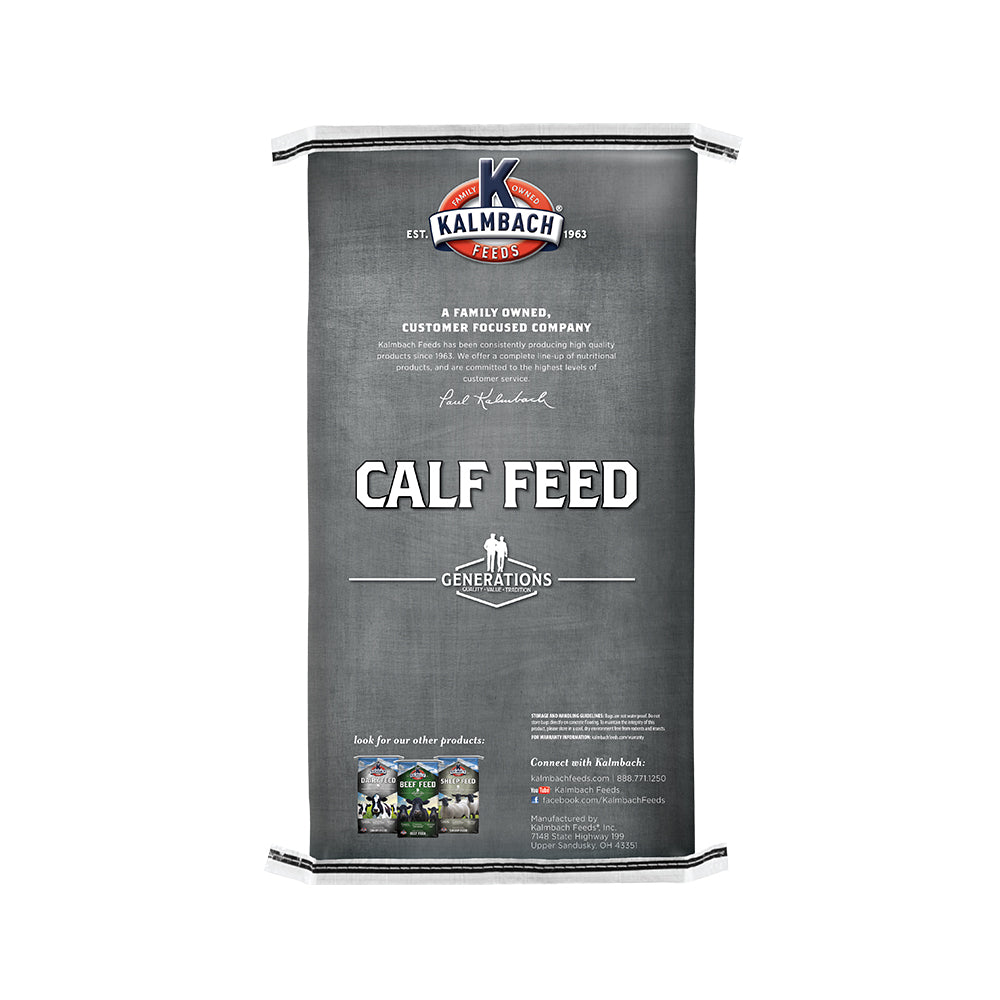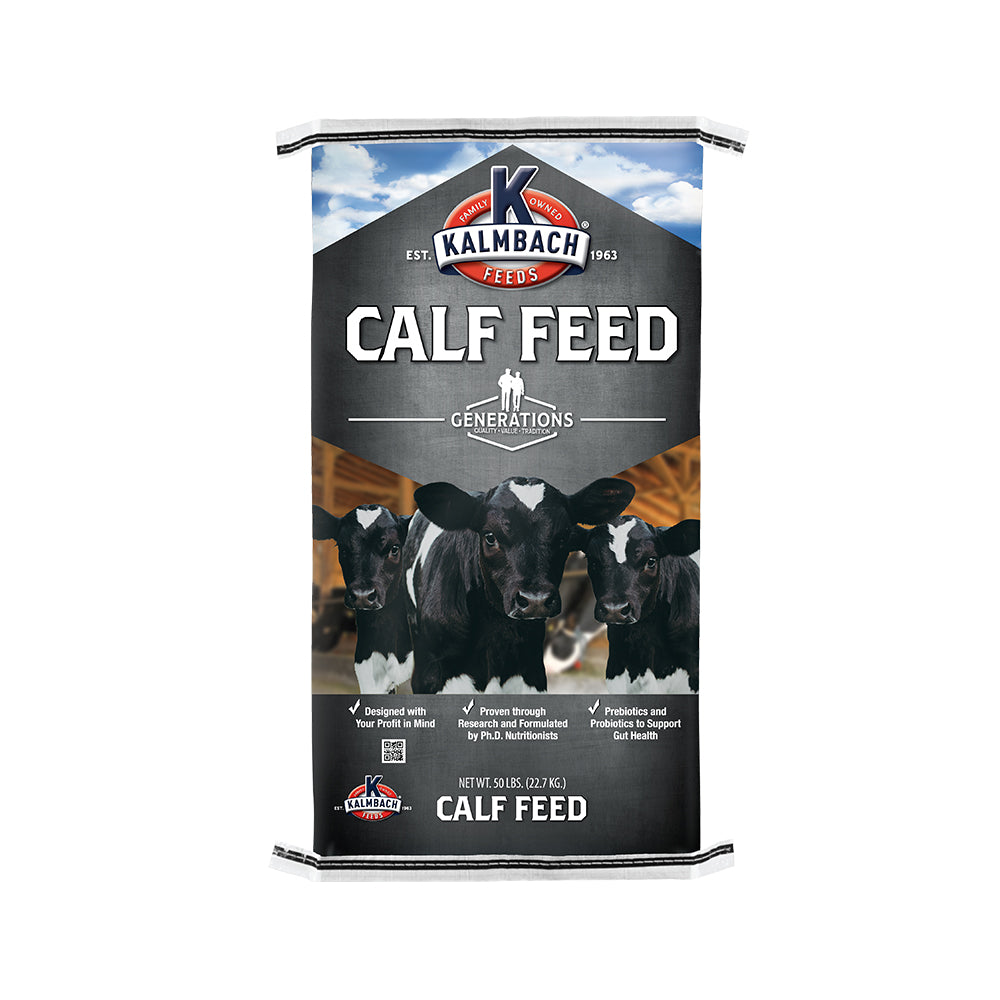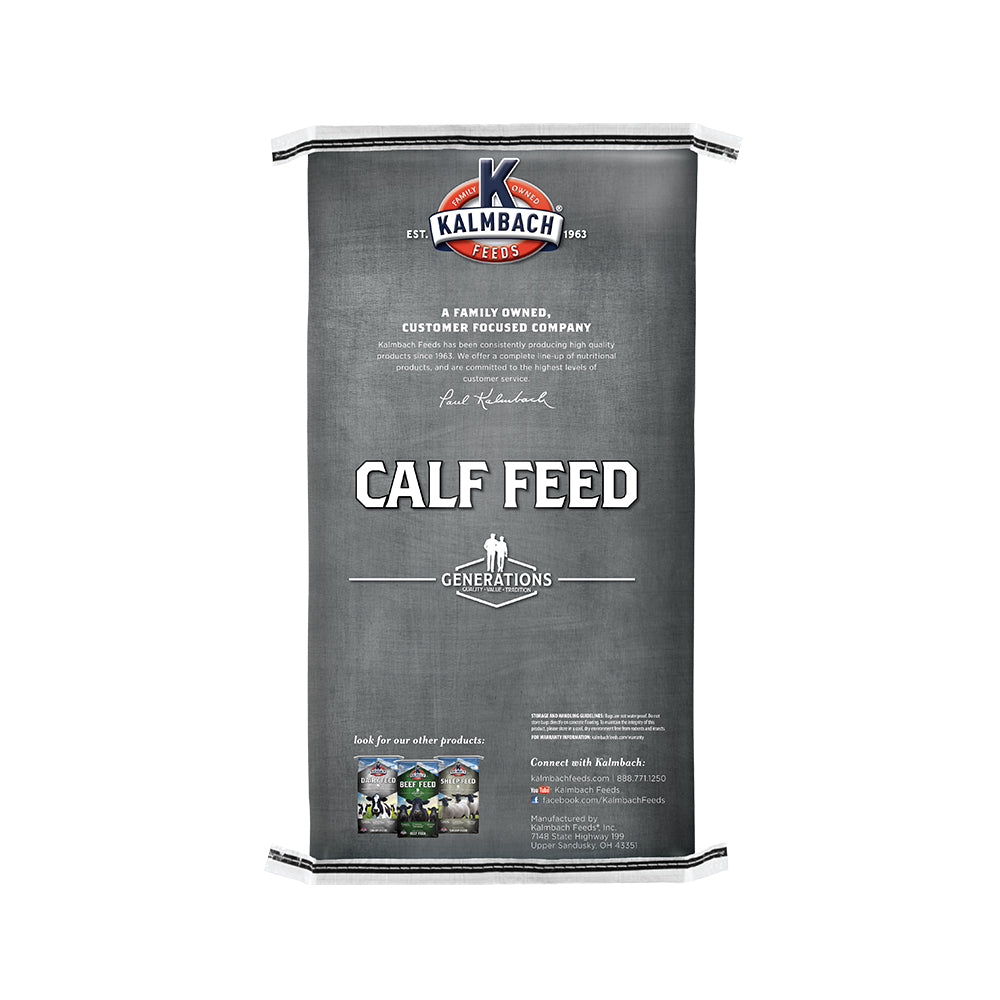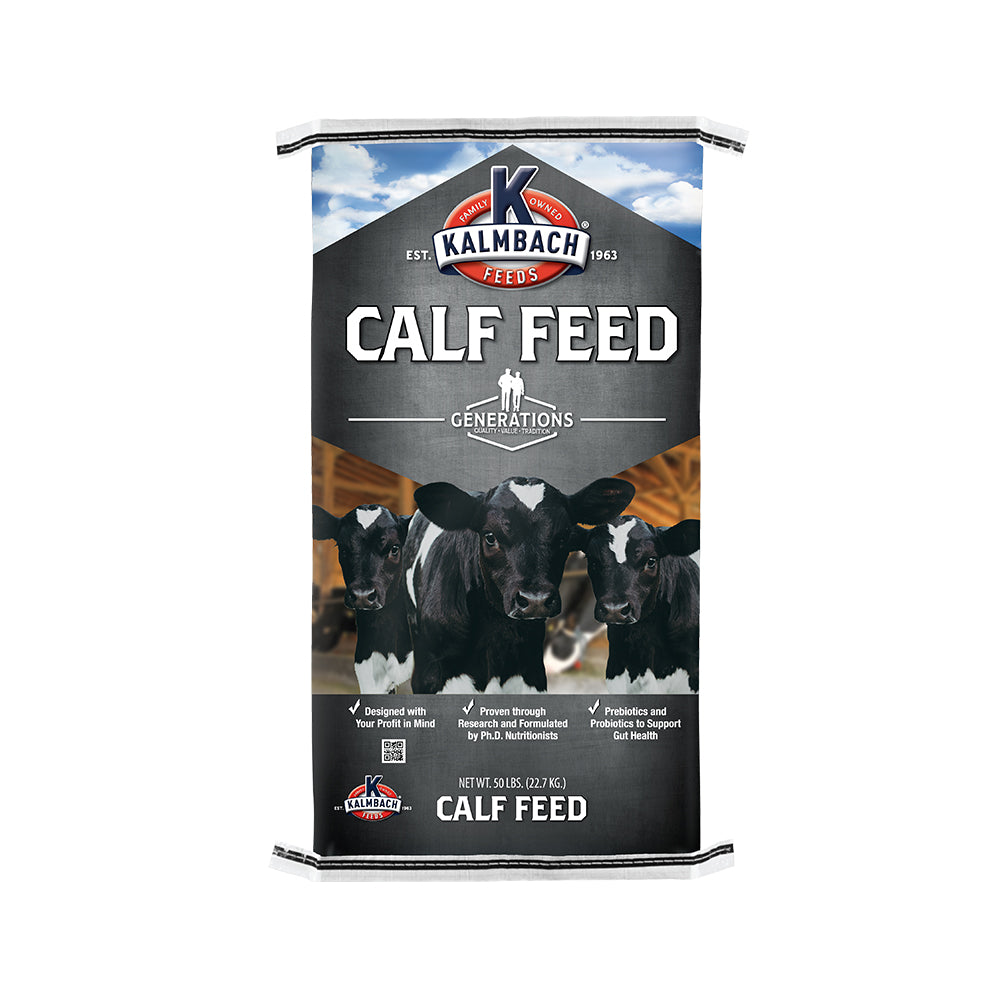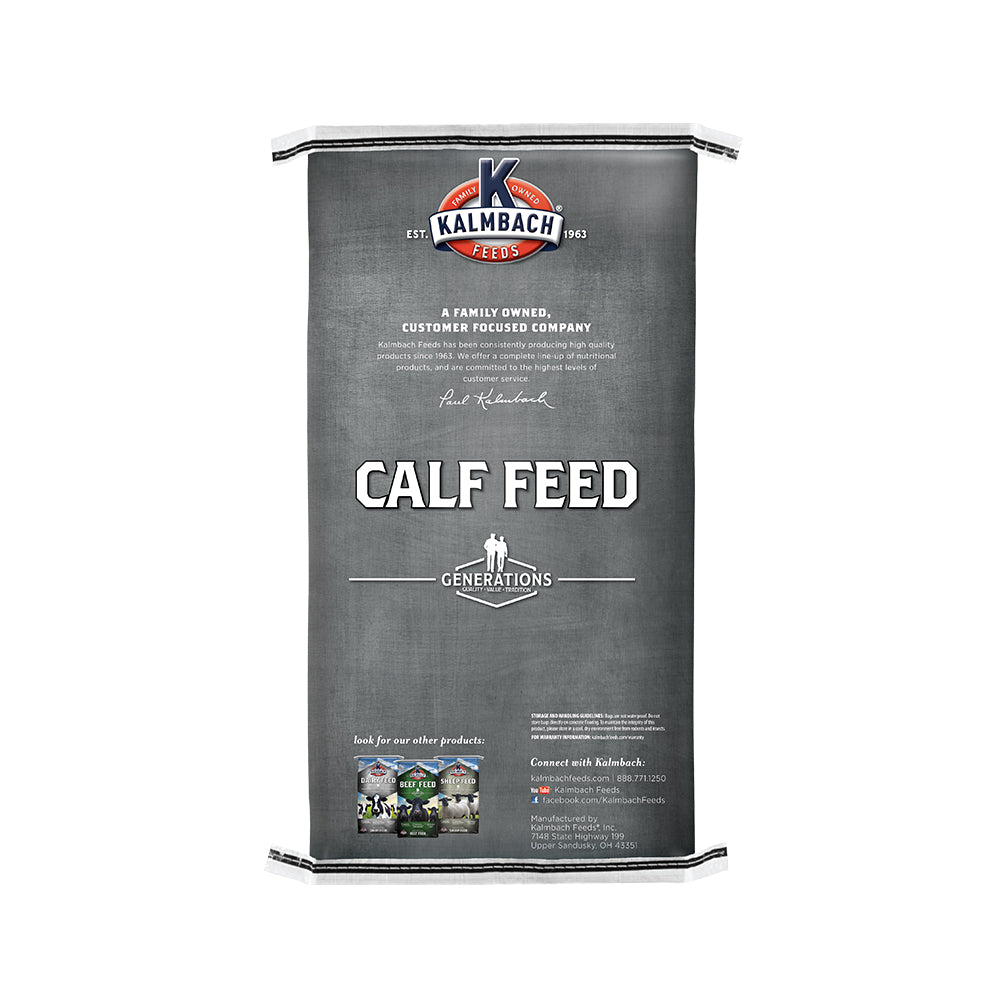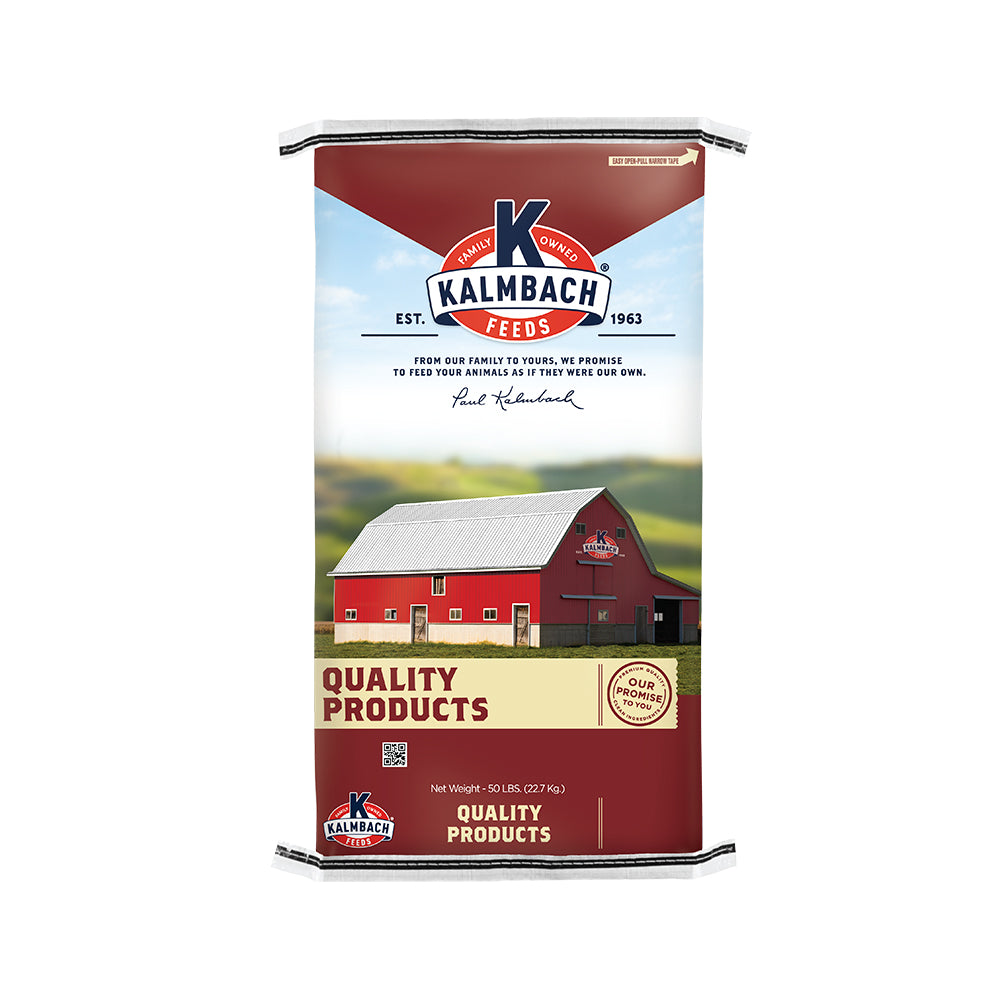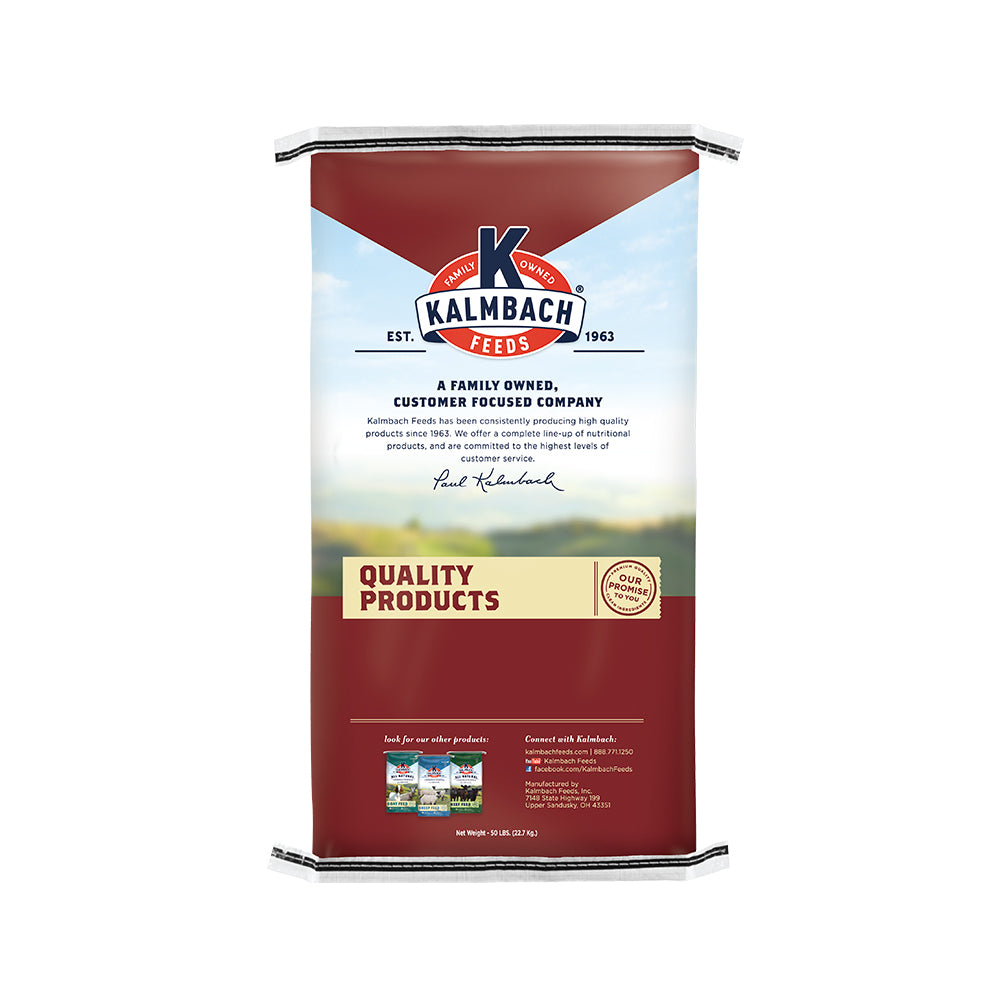
Cow Feed for Dairy Cows, Heifers & Calves
Common Cow and Calf Feed FAQs
The best feed for cows typically includes a balanced mix of forages (such as hay, silage, and pasture grasses) and grains to meet their energy, protein, vitamin, and mineral requirements. High producing dairy cows have very different nutritional needs than beef cows on grass. For optimal nutrition, consider specialized cattle feed products that provide essential nutrients and adapt to the specific needs of your herd’s breed, age, and production goals.
The daily feed intake of a cow varies depending on factors like age, size, and purpose (dairy or beef)—generally, cows consume about 2-3% of their body weight in dry matter each day. For a 1,200-pound cow, this translates to approximately 24-36 pounds of feed. When determining the right amount, consider nutrient needs, forage quality, and any supplemental feed to ensure your cow’s health and productivity.
Cow feed generally consists of protein, starch/energy, and ingredients that provide essential vitamins and minerals. High-quality feeds are designed to meet the cow’s nutrient requirements while supporting their growth, milk production, and overall health. Specialized feeds can also include additives that improve digestion, nutrient absorption, or target specific health needs.
For calves, milk or milk replacer during the early weeks is essential. Providing a creep feed early on to introduce calves to eating grain will help them get the best start through weaning. Calf starters should be high in protein (at least 18-20%) and energy to support growth and development. As calves grow, introducing quality forages and a calf-grower feed can support a healthy transition to adult feed while meeting their evolving nutritional needs.
Calf grower feeds are tailored for each size and age group of growing calves. One example of the way these production groups might be broken down, would be weaning to 400lbs, 400-800lbs, and 800lbs to finish. Calf grower feeds are nutritionally dense to support steady growth and consider the change in feed intake as the animal grows.
While it is difficult to overfeed calves, feeding the wrong type of feed can lead to digestive issues, including scours (diarrhea) and bloat. These issues can ultimately affect their growth and development. Following recommended feeding guidelines based on calf age and weight helps prevent misfeeding. A Kalmbach Feeds representative can help you make the best feeding decisions for your calves.
Young calves typically need to be fed two to three times per day, especially when bottle feeding or providing milk replacer. Frequent feedings help maintain a steady supply of nutrients for growth and avoid digestive problems. As they mature, calves can gradually transition to a consistent twice-a-day feeding schedule to support healthy growth and development.






